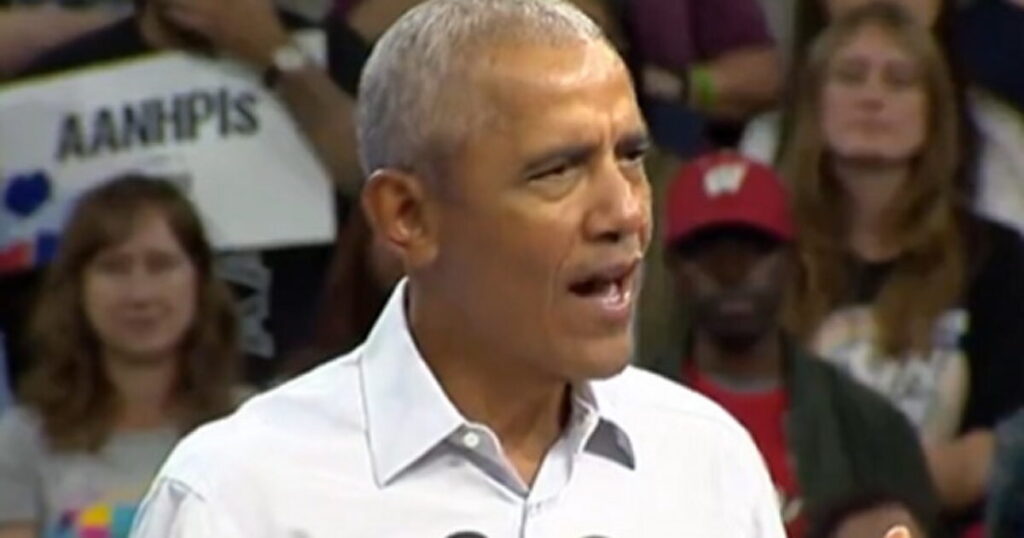Former President Barack Obama’s recent comments while campaigning for Vice President Kamala Harris in Wisconsin have sparked criticism, particularly regarding his reflections on political division in America. Obama expressed confusion about how the nation became so “toxic and bitter,” raising brows among many who argue that he himself has contributed to this divisiveness. The irony of his statement lies in historical instances during his presidency where he adopted polarizing rhetoric, such as labeling Americans as “bitter clingers” in 2008 and insisting to Republicans that “he won” the election, thus asserting dominance in political negotiations.
Many recall Obama’s call to action for his supporters to actively engage in disputes with their neighbors, urging them to “get in people’s faces.” This provocative approach, alongside his encouragement to vote for “revenge,” has led critics to question his claims of bewilderment over the current political landscape. The juxtap of his past comments with his recent sentiments serves as a focal point for discussions about the broader implications of political rhetoric and behavior among leaders and its impact on civic discourse.
In his remarks, Obama acknowledged the public’s disdain for politics, stating that many people choose to disengage from what they perceive as a “circus” of dysfunctionality. He maintained that while elections are fundamentally important—suggesting they hold weight in shaping policies and leadership—no individual in high office can solve every problem, such as poverty. This perspective highlights his belief in the necessity of voting, despite an apparent resignation to the reality that systemic issues persist regardless of electoral outcomes.
Critics of Obama argue that his history of confrontational politics contradicts his current plead for unity and introspection about the state of American society. His long-standing role as a prominent and “purposely divisive” figure during his presidency is cited as evidence of his direct involvement in fostering the very culture of division he now laments. This dichotomy raises questions as to whether Obama is genuinely unaware of his impact or is instead attempting to reshape the narrative for political purposes in a different political context.
Further complicating the discussion, clips and compilations of Obama’s more incendiary moments circulate on social media, underscoring the stark contrast between his past actions and his present commentary. These supercuts serve as reminders of a political climate he actively participated in creating and help frame the conversation around accountability and the responsibility of public figures to adhere to standards of civility. His statements, while appearing to call for reconciliation, could also reflect an attempt to rebrand himself as a voice of moderation amidst increasing polarization.
Ultimately, Obama’s comments provoke a deeper examination of the political climate in America today, challenging citizens to consider the roles played by various leaders—including himself—in shaping the narratives surrounding division, bitterness, and engagement in politics. It prompts discussions about the importance of personal and collective accountability and the ways in which leaders can influence their followers, potentially encouraging more constructive dialogue instead of conflict. The portrayal of Obama as someone perplexed by the current situation stands in stark contrast to his legacy, which many perceive as having stoked the fires of division during his presidency.

